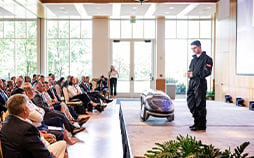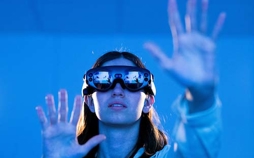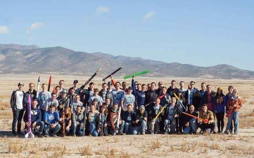BYU Students Set Record at 2,340 MPG
Imagine traveling 2,340 miles on one gallon of gas. For the BYU Supermileage Team, that’s not a hypothetical.
July 2019

Sierra Leone’s civil war left behind more than 27,000 amputees, most of whom cannot afford the expensive sockets that connect prosthetics to their severed limbs. But recent BYU graduates created an adjustable, affordable prosthetic socket to help.
As students, for their capstone project, recent mechanical engineering graduates Colton Graham and Sean Larson were part of a student team that worked with the nonprofit Engage Now Africa to produce a socket to fit prosthetics distributed by the International Red Cross.
Graham says, “There was a lot of back-and-forth as we learned what was needed and figured out a solution.” Ultimately, the students produced a socket for above-the-knee amputations—something that could cost hundreds of dollars in the United States— that costs about $40 and is made from materials that are available in Sierra Leone.
“We are so grateful for the family that decided to donate for our project,” says Larson. “As students, we rely on those donations so that we can have these real-life experiences.”

Imagine traveling 2,340 miles on one gallon of gas. For the BYU Supermileage Team, that’s not a hypothetical.

“As someone who wants to be a user experience designer, working in this lab has been an exciting challenge,” said Miah Dawes, one of the first students to take a class in BYU’s Mixed Reality Lab.

Patrick Walton also wanted to explore space. Along with starting the BYU Rocketry Club, he took a special projects class from David Long, who helped him write a proposal for NASA that was accepted.